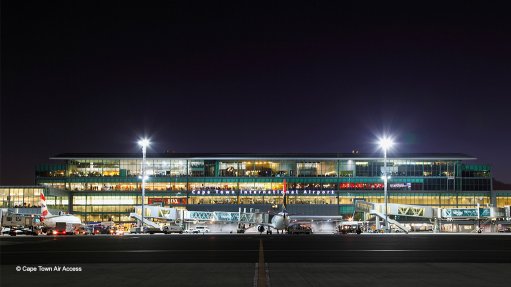Customs matters
It’s not often that a book on customs is published. The last such book of significance was published in 2003 by the International Monetary Fund (IMF) and it’s called Customs: Challenges and Strategies for the Reform of Customs Administrations. It made the case for the modernisation and reform of customs administrations and laid a path to strengthened and improved customs administrations at the beginning of the twenty-first century.
After a near-20-year wait, on June 15 this year, the IMF released its 319-page Customs Matters: Strengthening Customs Administrations in a Changing World, an electronic version of which can be downloaded for free on the IMF website.
The book’s summary states: “Customs administrations around the world face new challenges: an increasing volume of international trade, a revolution in new technologies, and fundamental changes in business models. The benefits of a well-performing customs administration are clear, as is the need to develop efficient, effective, fair and modern customs administrations. Customs Matters analyses the many changes and challenges customs administrations face and proposes ways to address them. By offering a cross- sectional view of the main aspects of customs administration, the book guides policymakers and customs officials as they evaluate the current state of their customs system with a view to developing, reinforcing or relaunching their own roadmaps for customs modernisation.”
The book consists of seven chapters: Chapter 1: The Multifaceted Role of Customs and Its Importance for the Economy and Society; Chapter 2: How Trade and Tax Policies Are Shaping Customs; Chapter 3: Institutional and Professional Foundations of Modern Customs Administration; Chapter 4: Customs in a World of Enhanced Trade Facilitation; Chapter 5: Strengthening the Core Customs Processes through Integrated Risk Management; Chapter 6: Customs Enforcement and Cooperation with Other Administrations; and Chapter 7: Customs Administration and Digitalisation.
Chapter 1 provides an overview of the multifaceted role of customs, its importance for the economy and society, and how it has evolved into its current role.
Chapter 2 examines the impact of trade and tax policies on customs, highlighting how these policies have shaped customs’ response to modern integrated supply chains.
Chapter 3 is a deeper dive into the institutional and professional foundations of customs. It discusses the need for robust management practices relating to customs reform and modernisation, legislative and regulatory frameworks, learning and development, and good governance and accountability. It includes practical examples of how to assist the customs administrations in developing their own key performance indicators – from the foundations of modern customs administration.
Chapter 4 examines, in detail, the challenges of enhanced trade facilitation and customs’ role in supporting a pro-trade national economy. A roadmap is included for customs administrations to become more transparent, with processes that are simplified, harmonised, and standardised to be more trade friendly.
Chapter 5 examines ways and means of strengthening core customs processes through integrated risk management and explains how this critical practice has many benefits from both the enforcement and trade facilitation perspectives. It includes a practical guide to assist customs administrations in identifying control gaps by comparing their current performance against good practices, aiding them to develop their own roadmap for improvement.
A key role for customs is enforcement, and Chapter 6 examines strategies for strengthening this critical function. The challenges and risks associated with fraud and antismuggling enforcement are discussed and guidance provided on developing a robust enforcement programme, with emphasis on the value of information sharing.
Chapter 7 looks forward to new and emerging technologies and how they may be used to improve the performance of customs administrations. It also examines why previously implemented technologies sometimes do not produce the expected or desired results.
Article Enquiry
Email Article
Save Article
Feedback
To advertise email advertising@creamermedia.co.za or click here
Announcements
What's On
Subscribe to improve your user experience...
Option 1 (equivalent of R125 a month):
Receive a weekly copy of Creamer Media's Engineering News & Mining Weekly magazine
(print copy for those in South Africa and e-magazine for those outside of South Africa)
Receive daily email newsletters
Access to full search results
Access archive of magazine back copies
Access to Projects in Progress
Access to ONE Research Report of your choice in PDF format
Option 2 (equivalent of R375 a month):
All benefits from Option 1
PLUS
Access to Creamer Media's Research Channel Africa for ALL Research Reports, in PDF format, on various industrial and mining sectors
including Electricity; Water; Energy Transition; Hydrogen; Roads, Rail and Ports; Coal; Gold; Platinum; Battery Metals; etc.
Already a subscriber?
Forgotten your password?
Receive weekly copy of Creamer Media's Engineering News & Mining Weekly magazine (print copy for those in South Africa and e-magazine for those outside of South Africa)
➕
Recieve daily email newsletters
➕
Access to full search results
➕
Access archive of magazine back copies
➕
Access to Projects in Progress
➕
Access to ONE Research Report of your choice in PDF format
RESEARCH CHANNEL AFRICA
R4500 (equivalent of R375 a month)
SUBSCRIBEAll benefits from Option 1
➕
Access to Creamer Media's Research Channel Africa for ALL Research Reports on various industrial and mining sectors, in PDF format, including on:
Electricity
➕
Water
➕
Energy Transition
➕
Hydrogen
➕
Roads, Rail and Ports
➕
Coal
➕
Gold
➕
Platinum
➕
Battery Metals
➕
etc.
Receive all benefits from Option 1 or Option 2 delivered to numerous people at your company
➕
Multiple User names and Passwords for simultaneous log-ins
➕
Intranet integration access to all in your organisation
















